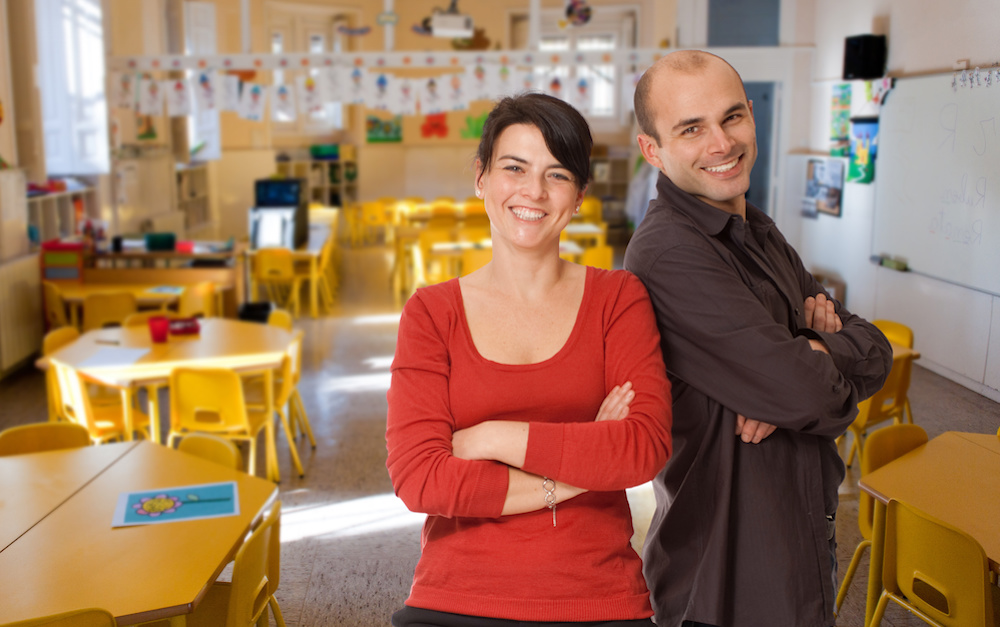
This year marks the end of new enrolments into the one-year teaching diploma. ‘Teacher quality’ has become such a focus in recent years, that the course required to turn a specialised degree into a teaching qualification has now doubled in length. Will bigger equal better?
Well that remains to be seen, but as long as there is a hefty practical component, and most importantly, adequate mentorship and support, they will probably enjoy their first years of teaching a whole lot more than they might have.
Will it raise the NAPLAN scores? Not on its own, no – but you know that as well as John Hattie, Adam Voigt, and a host of other commentators, who have all spent time teaching real students in real classrooms. It’s not solely up to teachers to improve outcomes; yet, research shows that high quality professional development does enhance outcomes, and build confidence in teachers. As calls for reduced teaching hours continue to go unanswered, teachers have the pleasure of finding time to incorporate professional development into their busy schedules. Lucky teachers love learning, because there are so many ways to tick off those PD hours and upskill in something that interests you, or address an area of practice you find a challenge.
Professional development (PD) can take many forms; registered teachers can upskill in specialisations like autism pedagogy, or special education. Training is available in technological literacy, cyber safety, and student wellbeing and the 21st century classroom. For knowledge-seeking teachers, every angle, subject area, and mode of study is available. Universities and registered training organisations generate courses and programs that bend the parameters of traditional teaching practice and cover topics such as innovations in pedagogy, program design and education research.
There is growing interest in the quality of PD, with researchers and educators interested in the delivery, form and structure, and the pedagogical approach of teaching the teacher. In a 2015 article titled, ‘Extending experiential learning in teacher professional development’, published in journal Teaching and Teacher Education, Girvan et al. pose an extension to that which we already know: teachers constantly self-improve, self-analyse and learn through experience.
Drawing on the lived experiences of secondary teachers negotiating a recent curriculum overhaul in Ireland, the authors proposed that, when new and different requirements are introduced into teacher practice, teachers should undergo ‘experiential learning’, by way of on-the-job training and expert feedback.
Early career teachers face the same task, which is ‘to learn new things, quickly’. The article suggests such PD activities would suit both situations and offer much-needed support to teachers tasked with fielding the constant externally mandated ‘updates’ to requirements and ‘overhauls’ to their practices.
A report titled ‘Supporting Teachers, Supporting Children’ was released in March this year to report on research undertaken by the Centre for Community Child Health on behalf of the NSW Education Standards Authority (NESA). The report found that “across all topics about which respondents were questioned, interest in professional development was consistently high”. The research also looked at what teachers were asking for. The report said, “three professional development topic areas emerged most strongly from asking both primary school and early childhood teachers about their interest in professional development. They were additional learning or support needs in relation to behavioural or social-emotional difficulties; learning, language or cognitive impairment, and problems in the home environment”.
These three areas where teachers want PD might indicate that teachers feel required to act as ‘specialists’ without the specialist training.
While the pressure on teachers shows no sign of abating, a focus on researching the nature and scope of PD opportunities (by actually talking to the teachers) will be welcomed by many. So too will teachers welcome an emphasis on specialist training for the management of issues that are often a result of the social issues of our times.
Teachers may also appreciate the calls for mentorship for educators charged with adopting new approaches and strategies introduced every time a panel of ‘experts’ has a new plan to save our OECD slipping skins.







